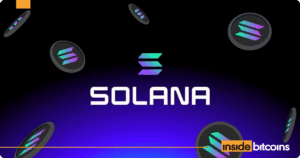Victims Outraged as $1.8B DGCX Crypto Scam Ringleader Mocks Them

Major Cryptocurrency Fraud Uncovered: Four Arrested in $1.8 Billion DGCX XinKangJia Scheme
Hong Kong Police Crack Down on Cryptocurrency Scam
Authorities in Hong Kong have apprehended four suspects linked to a fraudulent cryptocurrency investment scheme that reportedly swindled over 3 million Hong Kong dollars from unsuspecting investors. This operation was associated with a fake platform that falsely claimed to be affiliated with the Dubai Gold and Commodities Exchange (DGCX). The alleged mastermind behind the scam has managed to evade capture and has publicly ridiculed the victims for their gullibility.
- Hong Kong Police Crack Down on Cryptocurrency Scam
- The Collapse of the DGCX XinKangJia Platform
- A Pyramid Scheme in Disguise
- Public Outrage and Mockery from the Founder
- Sanjo’s Innovative Civic Identity Experiment
- Launch of Digital Sanjo Citizen ID
- Addressing Population Decline with Digital Citizenship
- Shinhan Bank’s New Cryptocurrency Feature
- Enhancing Accessibility to Digital Assets
- Regulatory Momentum in South Korea
- Infini Exploit: A $50 Million Heist
- The Aftermath of the Attack
- Fund Movements and Legal Actions
The Collapse of the DGCX XinKangJia Platform
The arrests are part of a broader investigation following the abrupt shutdown of the “DGCX XinKangJia” platform in mainland China. On June 25, the platform unexpectedly halted withdrawals for its 2 million users, and by the following day, it had vanished entirely from the internet.
Marketed as the Chinese counterpart of the Dubai-based organization, XinKangJia lured investors with promises of a 1% daily return on investments denominated in USDT, focusing on gold and oil. Before its closure, the platform allegedly funneled approximately 1.8 billion USDT (around 13 billion yuan) through Tornado Cash into offshore wallets, as reported by blockchain security firm SlowMist.
A Pyramid Scheme in Disguise
The fraudulent scheme operated under a military-style hierarchical structure, categorizing participants into nine ranks ranging from “squad leader” to “commander.” Users were incentivized to recruit new investors to ascend the ranks and earn bonuses in USDT.
On July 7, officials in Taojiang County, Hunan Province, officially labeled the platform as a suspected case of fundraising fraud and illegal pyramid selling. The legitimate Dubai Gold and Commodities Exchange distanced itself from the Chinese platform on April 8, cautioning that any entities using its name were unauthorized and likely fraudulent.
Public Outrage and Mockery from the Founder
All transactions on XinKangJia were conducted in USDT, which allowed the operation to evade traditional financial regulations in China. Public anger surged after the platform’s founder reportedly fled abroad and mocked the victims in group chats.
In a translated message, the founder stated, “Everyone’s wealth should align with their intelligence. Since your wealth didn’t match your intelligence, I helped balance it out for you. I only took what didn’t belong to your level of intelligence. I hope you can be grateful.”
Anime Enthusiasts Can Acquire NFTs for Digital Citizenship in Japan
Sanjo’s Innovative Civic Identity Experiment
Once primarily known for its knife manufacturing, the Japanese city of Sanjo is now pioneering a blockchain-based initiative aimed at redefining civic identity.
Launch of Digital Sanjo Citizen ID
On Tuesday, Sanjo introduced the Digital Sanjo Citizen ID, an NFT that enables individuals worldwide to become digital residents of the city. NFT holders will gain access to an exclusive community, benefits such as stays at local hot springs, virtual town hall meetings, and even voting rights in the upcoming digital mayoral election. Additionally, they can propose initiatives for the city’s digital future.
The NFTs, which have received official recognition from the local government, are designed by students from a nearby anime college. Each token features a “Guardian of the Artisans,” representing a real-world manufacturer from the Tsubame-Sanjo industrial cluster, renowned for its high-quality knives, pliers, and stainless steel tools.
Addressing Population Decline with Digital Citizenship
Like many rural areas in Japan, Sanjo is facing challenges related to population decline and youth migration to urban centers. To combat this, officials are embracing the concept of kankeijinko, which refers to a “related population” of non-residents who engage meaningfully with the community.
Last year, Cointelegraph reported that Yamakoshi, a village in the Niigata mountains, attracted 1,700 digital citizens through a similar NFT initiative. The Japanese government is also exploring metaverse applications to tackle broader social issues, including the phenomenon of “hikikomori,” or social withdrawal.
Shinhan Bank Becomes First Major South Korean Bank to Launch Crypto Section
Shinhan Bank’s New Cryptocurrency Feature
Shinhan Bank, one of South Korea’s leading commercial banks, has made history by launching a dedicated cryptocurrency section within its mobile application.
Enhancing Accessibility to Digital Assets
This new feature allows users to monitor real-time cryptocurrency prices, access beginner-friendly educational resources, and view professional research reports. This initiative is part of Shinhan’s broader strategy to make digital assets more accessible and transparent for the general public.
The app integrates with the local exchange Korbit, enabling customers to link real-name verified accounts, track their crypto holdings, and request higher transaction limits.
Regulatory Momentum in South Korea
Shinhan is among five South Korean banks that have partnered with licensed exchanges, providing customers with compliant pathways to trade cryptocurrencies through their bank accounts. The bank has consistently positioned itself at the forefront of the country’s digital asset adoption.
This launch coincides with South Korea’s intensified efforts to regulate the cryptocurrency sector under President Lee Jae Myung’s administration, which includes proposals for a won-pegged stablecoin. In late June, eight major banks, including Shinhan, announced a collaborative initiative to issue a fiat-backed digital currency.
Infini Hacker Launders Stolen ETH Amid Price Surge
Infini Exploit: A $50 Million Heist
The individual responsible for the $50 million exploit of the crypto card company Infini has begun laundering the stolen funds, taking advantage of Ethereum’s recent price increase to secure significant profits.
The Aftermath of the Attack
On February 24, the hacker drained $50 million in USDC from Infini’s vaults and swiftly converted the funds into 17,696 ETH. With Ethereum now trading above $3,400, the hacker’s holdings have appreciated to approximately $61 million, yielding an unrealized profit of $11 million.
Fund Movements and Legal Actions
On-chain data analyzed by blockchain investigator EmberCN reveals that the hacker has started to offload portions of the stolen assets. So far, 1,770 ETH has been exchanged for $5.88 million in DAI, while 5,001 ETH has been funneled into Tornado Cash, a privacy tool commonly used to obscure fund movements.
Infini had previously offered a bounty for the return of the stolen funds and initiated legal proceedings. In June, the company announced its decision to cease operations in the stablecoin card sector. The hacker still retains control of around 10,925 ETH in their wallet.







